Let’s discover, recover and coexist with turtles and other Northwest reptiles and amphibians

Slow and Steady for Turtles
In the race against extinction, endangered western pond turtles are getting a head start. See the impact of 30 years of devoted conservation efforts on this Washington native’s future.
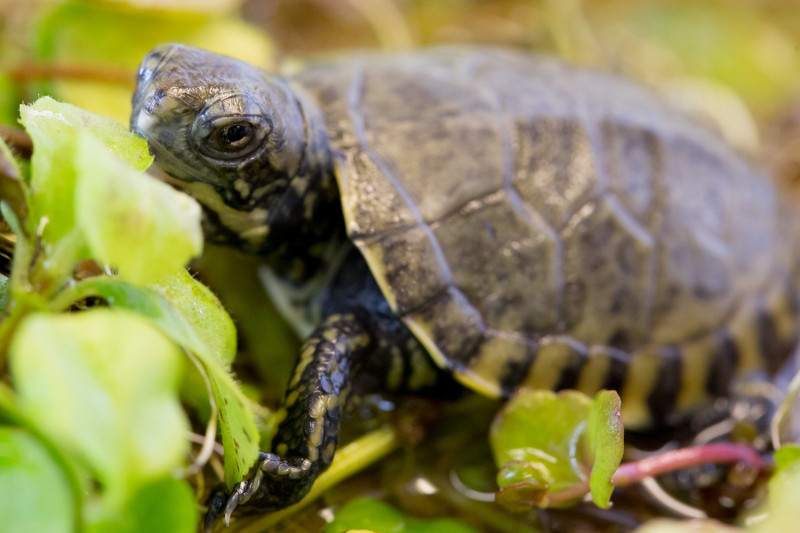
Discover

Learn About Northwest Herps

Our friends at Northwest Partners in Amphibians and Reptile Conservation are a diverse group of like-minded community members dedicated to the conservation of herpetofauna––reptiles and amphibians. Membership is free and there are a lot of fantastic resources if you are curious!

Become an Eggs-pert
Check out this great resource on identifying amphibians and their egg masses in the PNW, from our friends Washington Department of Fish and Wildlife

Awesome Amphibians
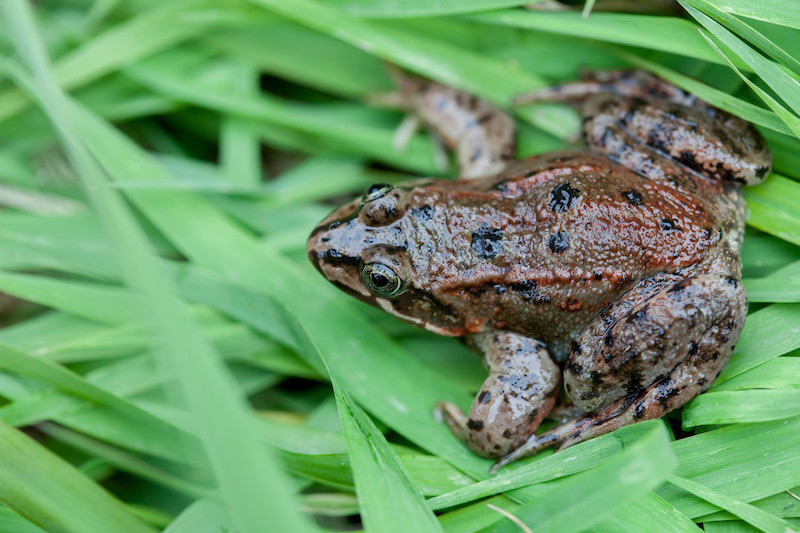
These PNW gems are all around if you know where to look!
Katie Remine, PNW amphibian expert and Coordinator of Living Northwest Conservation at Woodland Park Zoo gives the scoop on where to spot a few of her favorite amphibians.

All About Amphibians
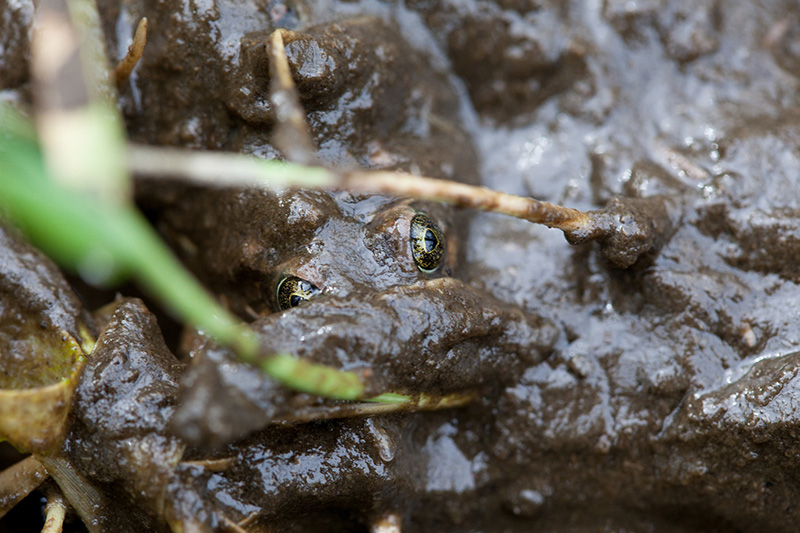
Amphibians are small vertebrates that live part of their life in water and part of their life on land. Salamanders, frogs, newts and toads are all amphibians. The official state amphibian of Washington is the Pacific chorus frog (also called Pacific tree frog). Learn more from these awesome resources from our friends at Washington Department of Fish and Wildlife!
Recover

Saving Turtles in the Heart of Washington Wetlands
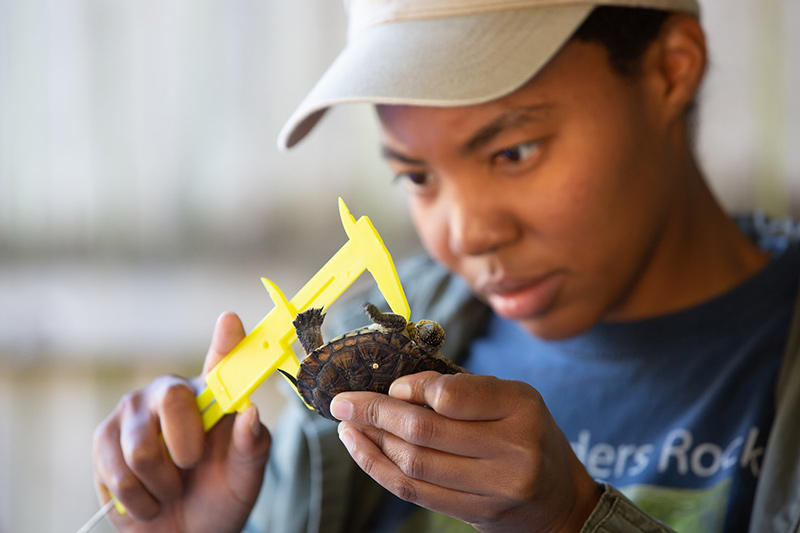
For the western pond turtle, recovery is possible thanks to a collaborative effort between Pacific Northwest stakeholders determined to give these local gems a head start. Knocked out by predators, loss of habitat and invasive species, the western pond turtle population hit a devastating low of 150 turtles in Washington in 1990. But now, this native species is poised for a comeback. For more than two decades, Woodland Park Zoo has partnered with Washington Department of Fish and Wildlife, Oregon Zoo and others to give these turtles a fighting chance. Today, successful reintroduction has brought that population up to over 800.

Community Science for Amphibians
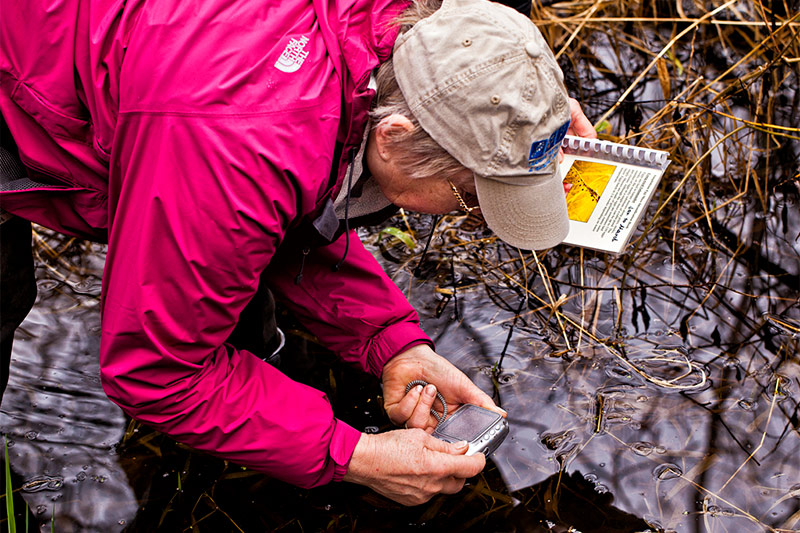
Over the last several decades, amphibians – including frogs, toads, salamanders and newts – have experienced the highest rate of species decline among vertebrate animals. These losses have occurred due to impacts such as wetland loss, disease, pollutants, invasive species and climate change. Woodland Park Zoo’s Amphibian Monitoring Program asks community scientists to look out for local amphibians.

Eliminate Contaminants
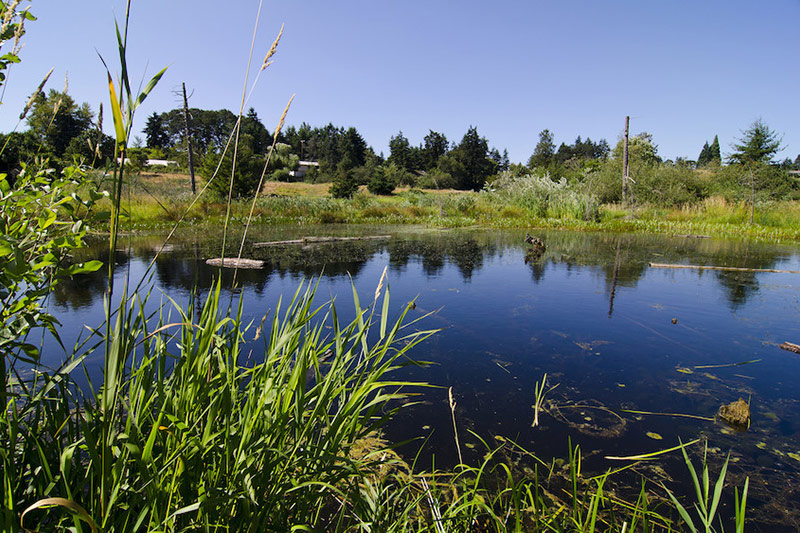
Keep our local waters clean by eliminating chemical pesticides from your gardening practices. Pesticides get into water, and once water flows away from your garden, it eventually empties into surrounding water systems—from freshwater ponds to the Puget Sound—bringing contaminants into wildlife habitat. Research organic and green ways to keep your garden flourishing and help wildlife.

Community Science Could Help Us Save Washington’s Amphibians

“Amphibians, especially urban amphibians, are often so overlooked and can be such important indicators of what is going on with our environmental health and changing climate, as long as we are paying close enough attention year after year,” says program co-coordinator Katie Remine, the zoo’s Living Northwest Conservation coordinator.
Read more about the local heroes helping to protect some of our most vulnerable creatures in this report by Hannah Weinberger via Crosscut
Coexist

Don’t Let it Loose!
When it comes to pet turtles (and many pets for that matter) inexperienced owners all too often end up releasing unwanted turtles into the wild, which can spread disease and lead to non-native species competing with local wildlife. Call your local animal shelter to find a new home for an unwanted pet or better yet, think before you buy.

Learn to Live With Beavers!
Beavers are important members of wetland ecosystems and play a big role in the healthy functioning of watersheds, which can help our amphibian and turtle friends! You can learn more about how beavers can help amphibians and find a great information on the environmental benefits of beavers and how to coexist with beavers.

Keep Wetlands Pristine
Wetlands and low-lying areas in the PNW are everywhere––and many of our local amphibians use these puddles, creeks, marshy areas and streams for laying their eggs. Keep the wetlands in your neighborhood clean by always scooping up dog poop, picking up litter and keeping contaminants like pesticides and herbicides from trickling into our waterways. Everyone benefits from a clean home!
